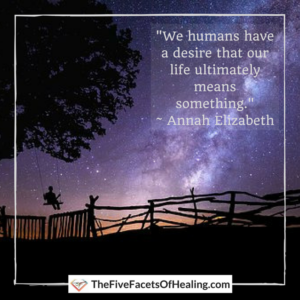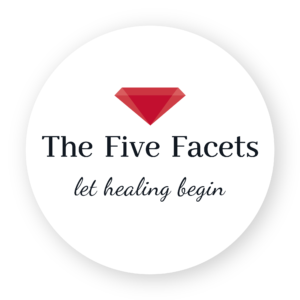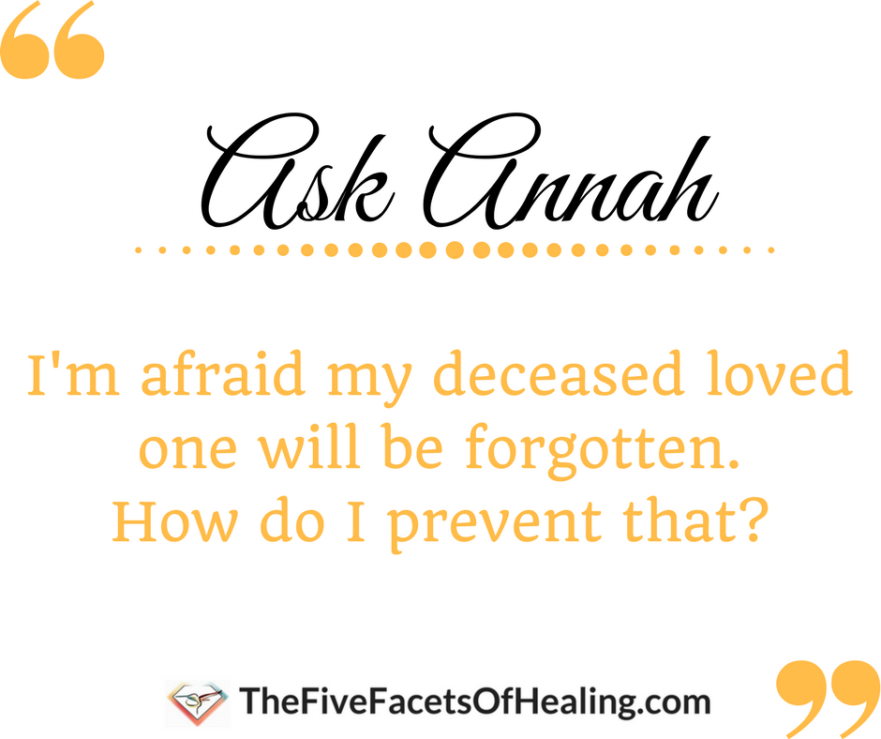Dearest Neighbor,
This is one of the greatest fears The Living have following the death of a loved one, especially an unexpected or “untimely” death.
Widows and Widowers. Loss Mamas, Papas, and Siblings. “Orphaned” children. [Insert your whatever.]
We lament what will never be. “Lost time.” Things that “should be” but never will be.
We have this sense of how orderly life is going to be, but the truth of the matter is that we are not guaranteed anything, unless you find humor in the joke that the only sure things in Life are Death and Taxes.
I’m afraid my deceased loved one will be forgotten; how do I prevent that?
I once had a conversation with a widow who lost her beloved to cancer at age forty-six and had lost both her parents in the previous two years.
“My new grandson and the generations to come will never know about them, they won’t have any memories of them,” she lamented. “And I think about the person who dies homeless on the street corner; someone who people never remember.”
It’s a common concern, but here is my take on it.
 We humans have a desire that our life ultimately means something.
We humans have a desire that our life ultimately means something.
When we die, we want people to be able to say, “This is who she was” or “This is what he stood for.”
When people expire before their assumed time, we lament that they will never have a chance to fulfill their potential..to create meaning in their life.
We act and think as if legacy ends with life, but the truth is that legacy begins at the end of life.
Those memories the widow spoke of?
Generational memories are passed down through stories, learned behaviors, idiosyncrasies, and keepsakes.
“No doubt your daughter has stories that she will tell her son, stories that will become a part of those future generations,” I said.
“And the person who dies on the street corner has touched countless lives in some way or another; passers-byes and onlookers talk about how they felt or what they did (or didn’t do) to help, and they share those stories until their own final days.”
These tales create entirely different bonds and memories, yet they often represent the meaning we want for our lives.
“Yes,” she said as her facial expressions and the glaze in her eyes shifted from sadness to excitement, “My father told me stories of how my grandmother always made bacon breakfasts for my grandfather and talked about how they were always so playful together. And I’ve heard my daughter share stories about her dad…they won’t be forgotten.”
Even though my firstborn, Gavin, died twenty-six minutes after his delivery and neither my husband, I, or our other children ever knew him in this physical world, we have made countless memories with him and created a legacy of meaningful stories.
Here are five easy ways to help carry on your loved ones’ legacy and to honor the meaning of their life, no matter how long they lived.
- Keep a few family photos or a scrapbook around, so you can reminisce when you are moved to do so.
- Share stories about your times together and quote things they said that have meaning to you.
- Share your emotions, the sad ones and the happy ones, because that’s how life is.
- Keep the stories authentic and real because putting someone on a pedestal is like those social media hilite reels: after a while no one believes them.
- Talk to them, ask them for guidance, and be open to receiving the signs they send from the other side.

I am not only honored to receive your queries, Neighbor, I LOVE answering them! As the saying goes, The only stupid question is the one not asked. Let us know your burning, nagging or curious thoughts! You can leave your question in the comments or email it to us. All questions are considered anonymous.
If you have tips or strategies that relate to this topic, please share in a comment below for, as I like to say, “Together we are helping heal worlds of hurt.”
Until next time, yours in hope, healing, and happiness,


